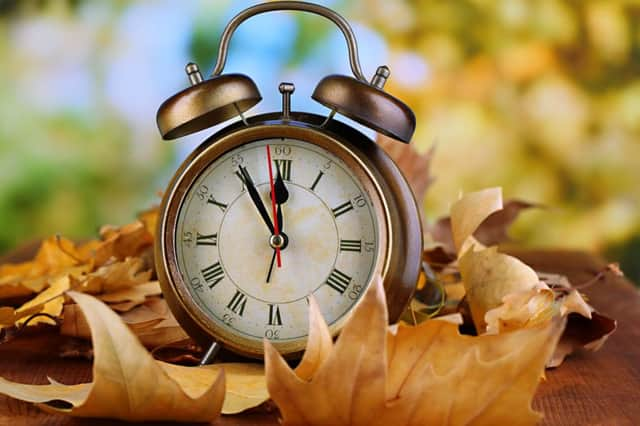When do the clocks go back?


The changes take place at 2am on Sunday when clocks should be set back an hour, giving you an extra hour in bed, so don’t miss out.
How do you remember which direction to change the clocks?
An easy way to remember is using the old phrase: “Spring forward, fall back” (Though this does mean you using the American term for autumn).
Advertisement
Hide AdAdvertisement
Hide AdWhen the hour changes, we’ll be shifting from British Summer Time (BST) to Greenwich Mean Time (GMT).
The clocks always go forward an hour on the last weekend in March in spring, and go back on the last weekend of October in autumn.
Why do we change the clocks?
Experts remain divided over the benefits over changing the clocks.
Reasons given in favour are that it saves energy, reduces accidents and crime, and is good for business.
Advertisement
Hide AdAdvertisement
Hide AdThose arguing against say there is no clear, decisive evidence it saves energy, and point to potential health risks.
FACTFILE:
The idea of British Summer Time (BST), also known as Daylight Saving Time, was first proposed in Britain by a keen horse-rider, William Willett, who was incensed at the ‘waste’ of useful daylight first thing in the morning, during summer. Though the sun had been up for hours during his rides through the local woods in Chislehurst and Petts Wood, people were still asleep in bed.
In 1968, the clocks went forward as usual in March, but in the autumn, they did not return to Greenwich Mean Time. Britain had entered a three-year experiment, confusingly called British Standard Time, and stayed one hour ahead of Greenwich until 1971.
This was not the first experiment to shift the clocks in winter. In the Second World War (1939-45), Britain had adopted Double British Summer Time, with the clocks one hour ahead of Greenwich in winter and two hours ahead in summer.
Advertisement
Hide AdAdvertisement
Hide AdWhen the British Standard Time experiment ended, the Home Office carried out an exhaustive review to find out whether it had been successful. The answer was both yes and no. There were ‘pros and cons’ to having the clocks forward and, on balance, the Government decided to return to the original British Summer Time.